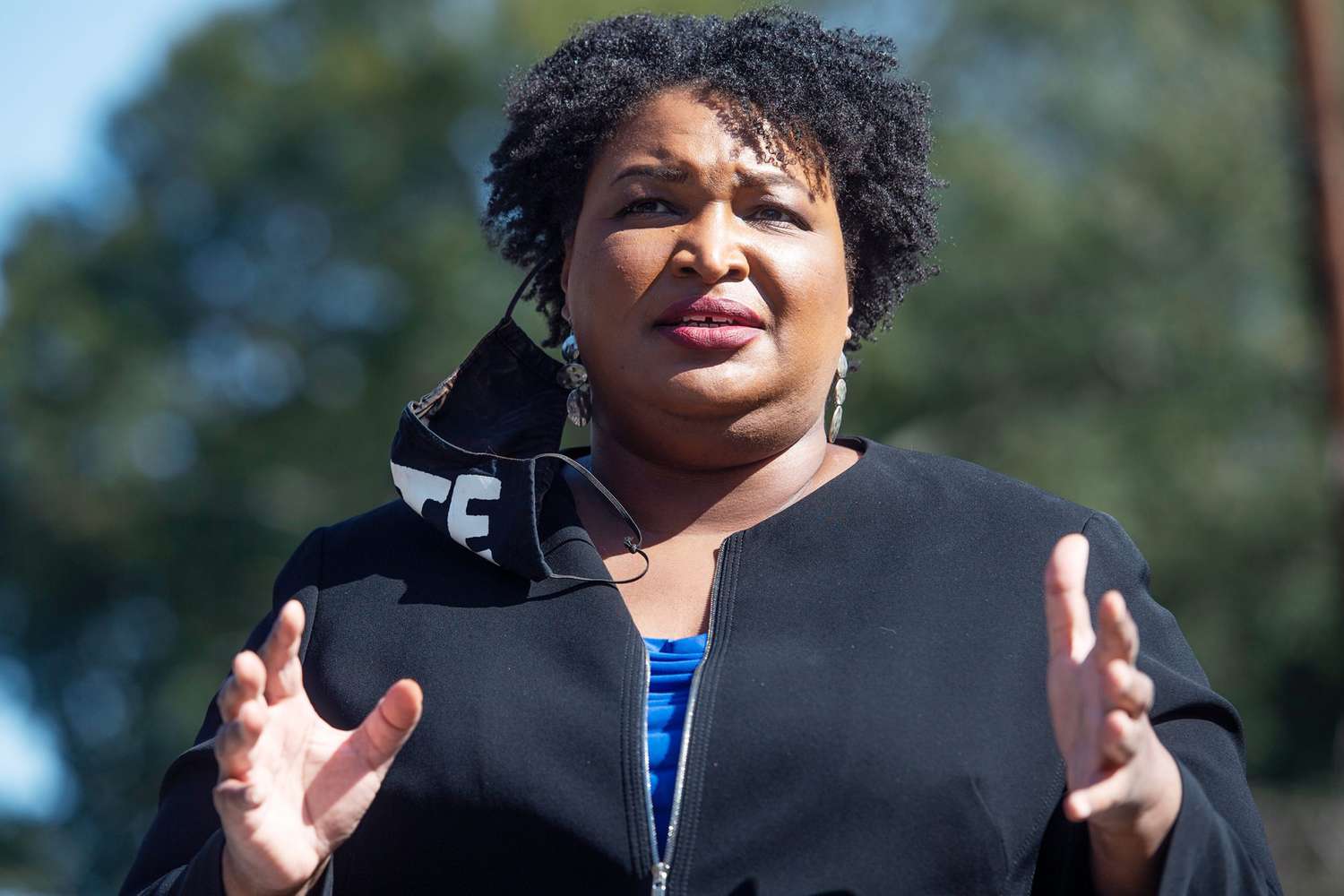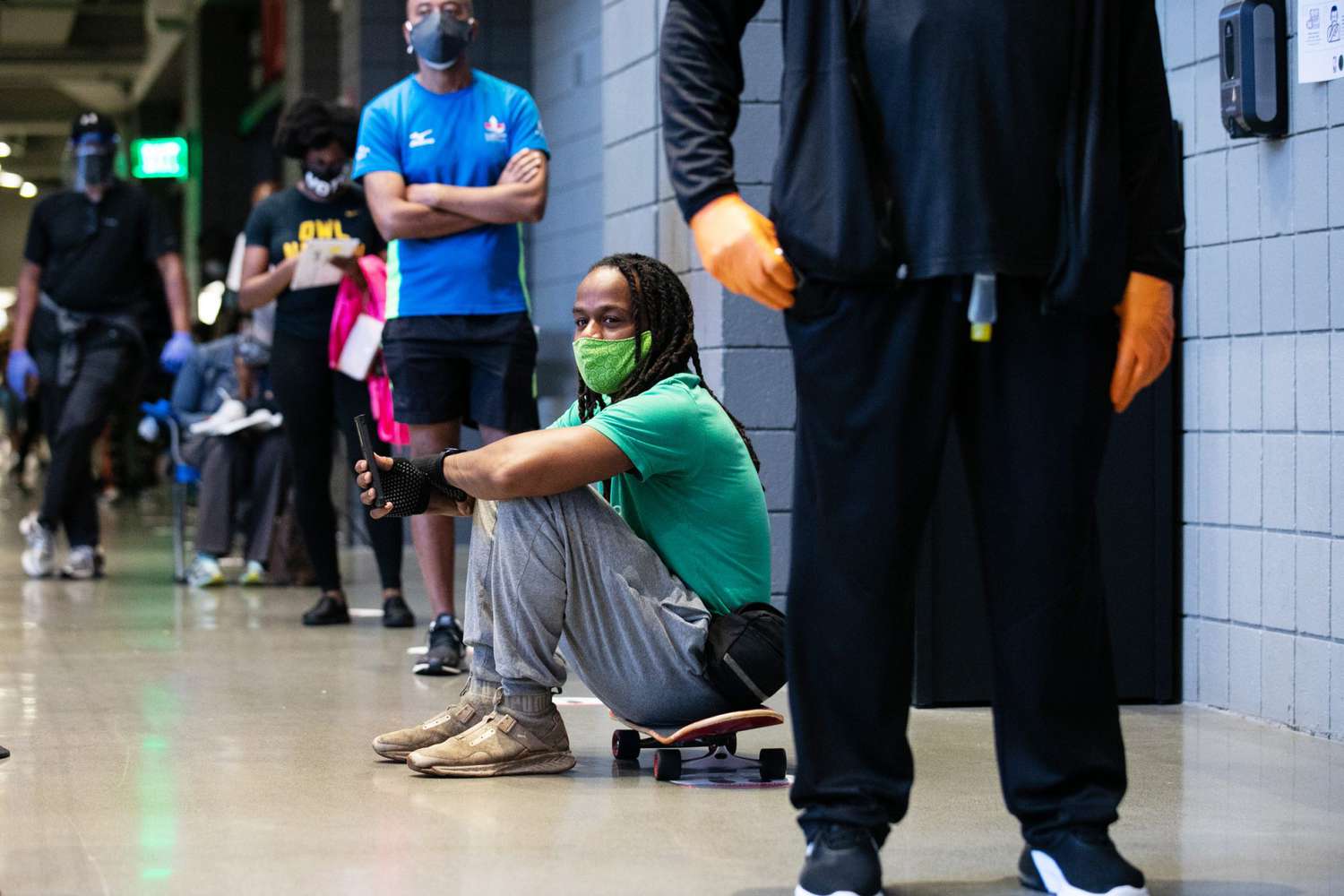Stacey Abrams Criticizes Georgia GOP's 'Racist’ Election Bill: ‘A Redux of Jim Crow'
The Republican-led effort to restrict voting access in Georgia is "a redux of Jim Crow in a suit and tie," according to Democratic activist Stacey Abrams, who spoke about several controversial new pieces of legislation on CNN's State of the Union this past Sunday.
Earlier this month, Georgia's senate approved a sweeping measure that would make qualifying for an absentee ballot more difficult for voters in the state. The bill, passed by the state senate's GOP majority, would also undo a 2005 law that allows almost anyone to vote absentee.
Following former President Donald Trump's recent defeat in Georgia, which came amid record-breaking voter turnout, Republicans there have also moved to end automatic voter registration and limit Sunday voting, CNN reports.
In total, the Atlanta Journal-Constitution reported there's roughly 40 Republican-backed measures in Georgia aimed to make it more difficult to vote in the state.
The majority of those measures failed to advance. But Abrams, 47, said the bills that survived—which would overwhelmingly impact Black voters, according to data gathered by the nonprofit Center for New Data—are comparable to historic laws that institutionalized racism.
"I do absolutely agree that it's racist," she told CNN's Jake Tapper when asked whether she believed the measures were racist. "It is a redux of Jim Crow in a suit and tie."
Abrams also batted down the notion that Republicans were backing the measures to protect the security of elections, noting that Georgia's own Secretary of State Brad Raffensperger has said the state's elections are safe and reliable already.
"Georgia's voting system has never been more secure or trustworthy," Raffensperger, the state's top election official, wrote in a Washington Post op-ed last November.
Abrams told Tapper the state's record turnout last November was a result of more people of color voting.
"It's not a question of security," she said. "The only connection that we can find is that more people of color voted and it changed the outcome of elections in a direction that Republicans do not like."
Abrams continued: "We know that voter fraud did not happen [in the 2020 election]. But we know that voter participation did increase and we should all be … democratic in the sense that we should want as many people as possible who are eligible to have a voice in the direction of our nation.
"That was the fundamental premise of this nation," she added.
Despite multiple investigations concluding widespread voter fraud did not happen last November, similar attempts to redefine election laws in the name of voting security are happening across the country.
Texas Gov. Greg Abbott announced plans Monday for a new bill aimed at decreasing voter fraud, despite admitting he isn't aware of any fraud that happened in his state during the 2020 election.
Republicans in Iowa and Arizona have also advanced or signed into law similarly controversial bills, which critics say restrict voting rights.
According to a report by the Brennan Center For Justice at New York University, lawmakers in at least 40 states have introduced bills that would put more restrictions on voting.
After serving as a Democrat in the Georgia House of Representatives from 2007 to 2017 (and the minority leader from 2011 to 2017), Abrams launched a 2018 gubernatorial campaign which ultimately fell short by a narrow margin, amid allegations that Republicans suppressed the vote (which they denied).
Since then, Abrams has focused most of her efforts on voting rights.
She founded the group Fair Fight in 2018, which lobbies for new election laws and targets challenges to voting that disproportionately impact minority voters—such as long lines and precinct closures.
Voter-registration efforts in Georgia, spearheaded by Abrams and others, set the backdrop for the state's record of nearly five million votes cast in the last general election, in which Joe Biden became the first Democrat to win the state in decades.
Two months later, Democratic Reps. Jon Ossoff and Raphael Warnock won their Senate runoff elections over Republican Sens. Kelly Loeffler and David Perdue.
Abrams, one of PEOPLE's Women Changing the World, said she enjoyed those election wins, but realizes there's still work to be done.
"I'm relieved not to live in a totalitarian society where we are dying with no hope of recourse. … I don't mean to make light of it, I mean very, very seriously, that was a good thing," she told PEOPLE. "This isn't work to be done that will have an end date or a success. It is work to be done because I believe in the responsibility to engage and to help."
Source: Read Full Article




